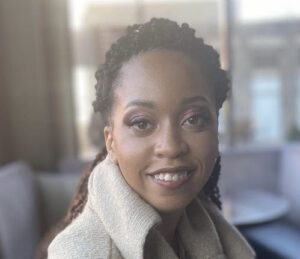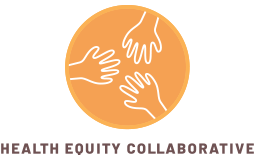20 Mar Demonstrating the Meaning of Developmental Disabilities Awareness Month: A Spotlight on The Arc’s, Ashley Glears
 March is Developmental Disabilities Awareness Month, a time to raise awareness about the achievements of people with developmental disabilities and advocate for a more accepting, respectful, and inclusive society for the developmentally disabled.
March is Developmental Disabilities Awareness Month, a time to raise awareness about the achievements of people with developmental disabilities and advocate for a more accepting, respectful, and inclusive society for the developmentally disabled.
According to the Centers for Disease Control and Prevention (CDC) about one in six, or about 17%, of children aged 3 through 17 have one or more developmental disabilities. Developmental disabilities are understood as a group of conditions that impair one’s behavior, learning, language, and/or physical abilities. Disabilities begin in the developmental stage and often last throughout a person’s life. Examples of developmental disabilities include autism spectrum disorder, muscular dystrophy, down syndrome, and cerebral palsy.
While individuals with developmental disabilities are often given stigmas by society, many often go on to live normal lives if they have the proper support. It is not uncommon for individuals to make exceptionally meaningful contributions to society as well.

Ashley Glears
Ashley Glears, Chapter Associate at The Arc of the United States (The Arc) is one such individual. Ashley’s inspiring story was recently featured in The Washington Post. Navigating the world as a person with cerebral palsy, Ashley obtained multiple degrees from universities within the greater Washington metropolitan area and is now a Chapter Associate at The Arc of the United States where she co-leads the Access, Equity, and Inclusion (AEI) Team.
Ashley supports The Arcs 500+ chapters around the country, providing communications and advocacy support on issues including social justice, equal opportunities, representation, and community engagement.
Ashley recently sat down with The Washington Post to talk about her life and career. Here are a few highlights from the interview that we found inspiring.
What did you learn about work that you learned from your family?
My family taught me to emphasize dedication, resilience, and a strong work ethic. Growing up, I witnessed my parents’ hard work – my father waking early and working on holidays, and my mom juggling multiple jobs. My older sister’s determination in her studies and her career also left a lasting impression. The key takeaway was clear – success is achieved through dedication.
What were the most important lessons you’ve picked up along the way?
As a person with a disability, my journey has been marked by invaluable personal and professional lessons that have shaped my perspective and resilience. One of the most crucial lessons is the power of self-advocacy. Navigating a world designed for able-bodied individuals taught me the importance of confidently asserting my needs and rights. Through advocating for myself, I’ve not only overcome obstacles but also contributed to fostering a more inclusive environment.
Embracing adaptability has been another key lesson. Living with a disability often requires creative problem-solving and adapting to various situations. This adaptability has not only been a practical skill but also a mindset that extends to my professional life. It has allowed me to approach challenges with a flexible and open-minded attitude, finding innovative solutions that benefit both me and my work environment.
What would you say to others who are doubting their ability to make a change in their career/vocation?
As a person with cerebral palsy, I’ve faced and defied numerous odds on my journey, and I want to share words of encouragement with those who may be doubting their ability to make a change in their career or vocation. First, it’s essential to recognize the unique strengths and resilience that come with overcoming challenges associated with disabilities. Every individual has a distinct set of skills, and acknowledging and harnessing those strengths can be a powerful driver for change.
Doubting one’s ability is common, especially in the face of societal expectations or preconceived notions about what individuals with disabilities can achieve. I would emphasize the importance of self-belief. Your capabilities are not defined by external perceptions but by your determination, passion, and the skills you bring to the table. Embrace your unique journey and recognize that your experiences can offer a valuable perspective that enriches any career or vocation…
…Your journey is valid, and your potential is limitless. Don’t let doubts hold you back; instead, let them fuel your determination to create positive change in your career or vocation.
Ashley’s story is a fantastic reminder of how individuals with developmental disabilities can and are making our society a better place. Her life demonstrates not only what is possible, but why it matters. We can think of no better way to celebrate Developmental Disabilities Awareness Month than by helping to share her story.
HEC understands that disability inclusion is a cornerstone of health equity. Achieving true disability inclusion requires more than simply supporting people with disabilities, it also means adopting policies and practices that are informed by actual lived experiences. This is why the work Ashley and her colleagues at The Arc are doing is so important.
HEC will continue to raise awareness about the importance of disability inclusions and champion the policies that can help people with developmental disabilities live quality lives and achieve their dreams. We hope you will stand with us.
To learn more about The Arc of the United States, please visit their website here.


